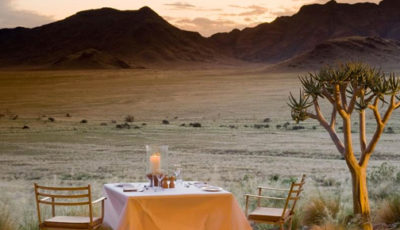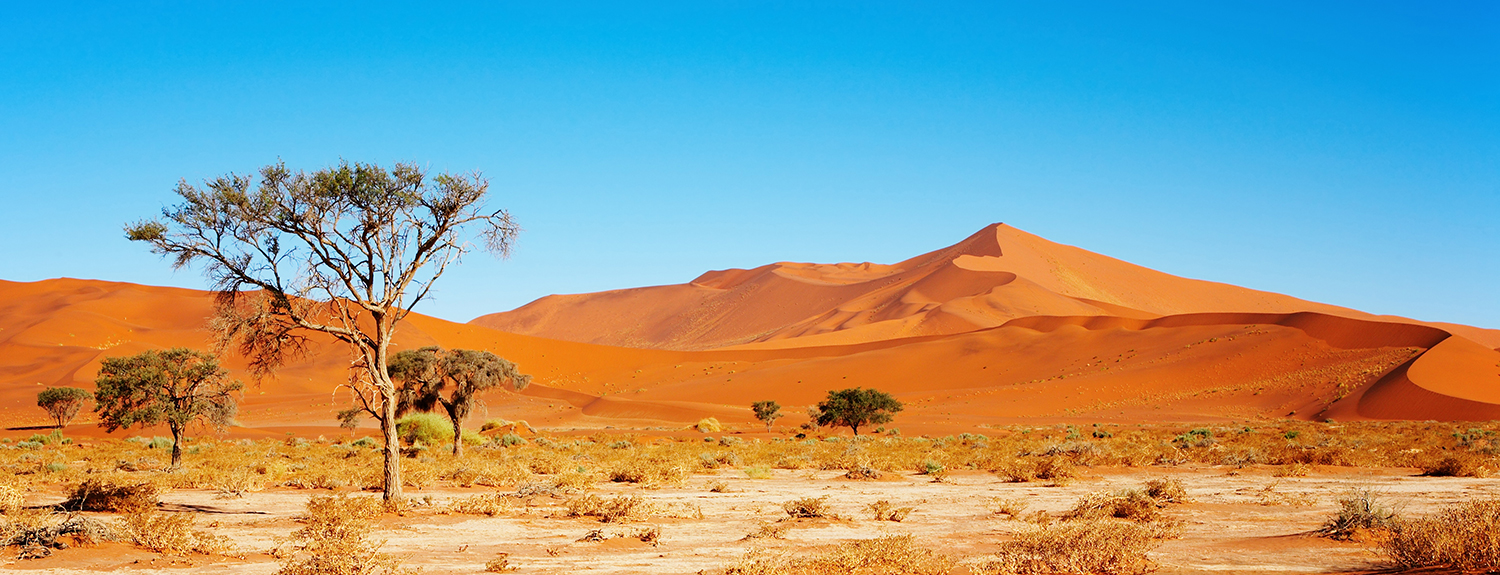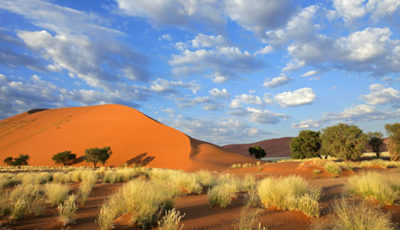This is the ultimate “unchartered” honeymoon. Stay in eco-luxurious lodges while traveling the vast and achingly beautiful country of Namibia.

Experts in socially responsible luxury travel. We design travel experiences that support conservation and local communities without skimping on comfort.

Steeped in history and rich in geologic wonder, Namibia is a fascinating eco-luxury safari destination for the seasoned traveler looking to break the norm. As one of the world's least densely populated countries, this is undoubtedly one of the most secluded escapes in Africa.
On its Atlantic seaboard, Namibia's famed sand dunes tower above an endless stretch of coastline where you can cruise from Walvis Bay on a luxury catamaran. Inland, the Namib Naukluft National Park's desert landscapes are a haven for intriguing desert-adapted species and host exclusive luxury lodges pioneering environmental sustainability in the safari world.
By supporting community-led programs that introduce and highlight local life, tourism helps sustain livelihoods and keep traditions alive. For authentic insight into the ancient culture of Namibia, hear bushman hunting stories under the stars, learn about the milking ceremony from the Himba tribe, and stay in a remote campsite in the ruggedly beautiful Damaraland, where you can see ancient rock art and remarkable geological formations. You'll have the opportunity to respectfully visit local villages to connect with their community and better understand their way of life.
Best times to visit Namibia
For dry season: May - October
For birdwatching: November - February
For flamingos: November - February
For game viewing: June - September

This is the ultimate “unchartered” honeymoon. Stay in eco-luxurious lodges while traveling the vast and achingly beautiful country of Namibia.

This trip will take you to the iconic sights of an ancient land, while staying in beautiful, conservation-conscious luxury lodges.
Sign up for the inside scoop on new destinations, family tips, and much more.
